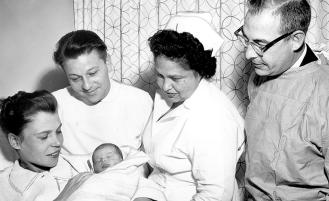Whooping Cough Cases Surge in Washington State: What You Need to Know
As of Dec. 21, nearly 2,000 whooping cough cases have been reported in Washington state, a sharp increase from just 80 cases at this time last year, according to the Washington State Department of Health. Overlake Infectious Disease Specialist Edward Leonard, MD, shares what you need to know about this common respiratory illness and how you can better protect yourself and your family.
What Is Whooping Cough?

Whooping cough, or pertussis, is a highly contagious illness that starts with cold-like symptoms, including a runny nose, sneezing and mild cough. Within one to two weeks, severe coughing spells begin, often ending with a distinctive “whoop” as air is inhaled.
In infants, symptoms may differ—pauses in breathing (apnea) can occur instead of coughing. If your child shows whooping cough signs, seek immediate medical care.
Key Symptoms Include:
- Persistent, severe coughing spells with a "whooping" sound.
- Runny nose.
- Fever and sore, watery eyes.
Whooping cough can last 10 weeks or more and may lead to complications like pneumonia.
Vaccination: Your Best Protection
Vaccination is crucial for preventing whooping cough. Here's what you need to know:
For Children
- Five doses of the DTaP vaccine are recommended by age six, starting at 2 months old.
- A Tdap booster is recommended at age 11 or 12.
For Adults
- Get a Tdap vaccine if you have never received one.
- Get a booster dose of Td or Tdap every 10 years to maintain protection.
During Pregnancy
- Pregnant individuals should get a Tdap vaccine between weeks 27 and 36 to pass protective antibodies to their baby.
Stay Protected
Talk to your healthcare provider about staying up to date on vaccines to protect yourself and your family from whooping cough. For more information, visit the Washington State Department of Health.








